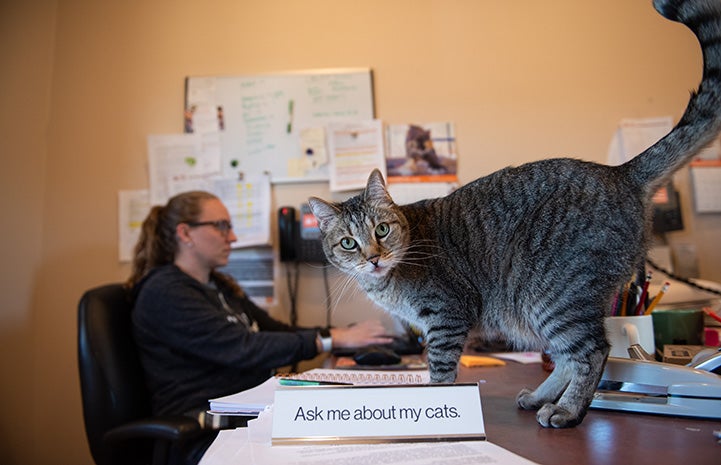The Growing Issue of Cats Pooping in Gardens
Gardens are cherished spaces where individuals cultivate beautiful plants, creating an oasis of nature within their homes. However, a persistent issue that many garden owners face is the presence of cats using their cherished plots as litter boxes. This article delves into the quest for effective solutions to address this frustrating dilemma.
The Quest for Effective Solutions
Cat owners and non-cat owners alike often find their outdoor spaces marred by unwelcome deposits from feline visitors. Finding a solution that respects both the needs of the cats and the desire to maintain a pristine garden has become an important topic for discussion.
Read More: Top CFMOTO UFORCE 800 Review and Problems
II. The Cat Behavior and Garden Predicament
Why Do Cats Choose Gardens as Their “Litter Box”?
Understanding the psychology behind cats’ choice of garden spaces for their bathroom needs is crucial. Cats are territorial creatures, and the loose soil and soft texture of gardens mimic their natural instincts to dig and bury waste.
Understanding the Impact of Cat Waste on Gardens
While cats might view gardens as convenient places to relieve themselves, their waste can have detrimental effects on the garden ecosystem. The ammonia and nitrogen content in cat urine can harm plants and soil quality over time.

III. Debunking the Bleach Myth
Examining the Popular Belief in Bleach as a Deterrent
Bleach has long been suggested as a remedy to deter cats due to its strong odor. However, the efficacy of this method is questionable, and it’s important to examine whether bleach truly discourages cats from using gardens as their personal toilets.
Science Behind Cats’ Odor Detection and Response
Cats have a highly developed sense of smell that enables them to detect subtle scents. While bleach might initially overwhelm their senses, cats can adapt to the smell, making its effectiveness short-lived.
IV. The Chemical Composition of Bleach
Breaking Down the Components of Bleach
Bleach is composed of sodium hypochlorite, which gives it its distinct odor and color. This chemical can react with organic matter, creating compounds that cats might find intriguing rather than repulsive.
How Bleach Interacts with Soil and Plants
When bleach comes into contact with soil, it can alter the pH levels and disrupt the balance of beneficial microorganisms. This can have long-term negative consequences for the health of the garden.
Also Read: Does Bleach Stop Cats Pooping in Gardens?
V. Potential Effects on Garden Ecosystem
Impact of Bleach on Soil Microbes and Nutrient Balance
Healthy soil relies on a diverse community of microorganisms that support plant growth. Bleach’s antimicrobial properties can harm these essential organisms, affecting the overall health of the garden.
Risks Posed to Beneficial Garden Insects
Gardens thrive when they host a variety of insects that aid in pollination and pest control. Bleach runoff can potentially harm these insects, disrupting the delicate ecological balance.
VI. Short-Term Cat Deterrence
The Immediate Effect of Bleach Smell
Upon initial application, the pungent smell of bleach can deter cats from entering the treated area. However, this effect tends to diminish as cats become accustomed to the scent.
Factors Influencing Temporary Cat Repellency
The effectiveness of bleach as a cat deterrent can vary based on factors such as weather conditions, the number of cats in the vicinity, and individual cat behavior.
VII. Long-Term Efficacy Evaluation
Bleach vs. Cat Territorial Instincts: A Battle of Wills
Cats’ territorial instincts often override temporary aversions to scents like bleach. Over time, cats might return to their favored spots, rendering bleach less effective as a long-term solution.
Gradual Reduction of Bleach Effectiveness Over Time
As cats become desensitized to the bleach smell, garden owners might need to increase the concentration of bleach or seek alternative solutions to maintain the deterrent effect.
VIII. Environmental and Health Concerns
Bleach as a Pollutant: Runoff and Water Contamination
When bleach is used outdoors, it can wash into the soil and eventually contaminate water sources. This poses risks to aquatic life and can have far-reaching ecological consequences.
Potential Harm to Other Wildlife and Pets
Bleach’s adverse effects aren’t limited to cats and plants. Other wildlife and pets that come into contact with the treated area might also suffer unintended consequences.
IX. Safer Alternatives to Bleach
Natural Cat Deterrents: Plants and Scents
Certain plants and scents are known to repel cats naturally. Lavender, rosemary, and citrus scents can deter cats without harming the environment.
Motion-Activated Sprinklers and Sound Devices
Modern technology offers alternatives like motion-activated sprinklers and ultrasonic sound devices that startle cats and discourage them from entering gardens.
X. Modifying the Garden Landscape
Creating Unappealing Surfaces for Cats
Garden owners can make changes to their landscape to discourage cats. Using materials like gravel or chicken wire on the soil surface can make digging uncomfortable for cats.
Using Visual and Physical Barriers
Installing physical barriers like fences or netting can prevent cats from accessing garden areas. Visual deterrents, such as reflective tape or decoy predators, can also be effective.
XI. Positive Reinforcement Techniques
Training Cats to Avoid the Garden Area
Cats can be trained to associate the garden with negative experiences through positive reinforcement techniques. Providing treats and praise when cats avoid the garden reinforces desired behavior.
Reward-Based Strategies for Long-Term Behavior Change
Consistency is key when training cats. Offering rewards over time can lead to a lasting change in behavior, where cats no longer see the garden as a suitable bathroom spot.
XII. Community and Legal Considerations
Communicating with Neighbors about Cat Behavior
Open communication with neighbors who own cats can lead to collaborative solutions. Sharing concerns and working together can help create a cat-friendly community.
Local Regulations and Animal Control Measures
In areas with persistent cat-related issues, it’s important to understand local regulations regarding outdoor cats and to collaborate with animal control authorities if necessary.
XIII. Case Studies: Bleach and Beyond
Real-Life Experiences of Garden Owners Using Bleach
Garden owners often turn to bleach out of desperation, but their experiences might shed light on its limitations and potential risks.
Successful Stories of Implementing Alternative Deterrents
Gardeners who have successfully tackled the cat problem share their stories, emphasizing the importance of persistence and a multifaceted approach.
XIV. Expert Insights on Cat Behavior

Interview with Animal Behavior Specialist
Gaining insights from experts in animal behavior helps shed light on why cats exhibit certain behaviors and how to effectively modify those behaviors.
Understanding Cats’ Instinctual Patterns and Triggers
Understanding cat behavior from a scientific perspective can guide garden owners in developing strategies that align with a cat’s natural instincts.
XV. Myth-Busting Other Garden Remedies
Coffee Grounds, Citrus Peels, and Cayenne Pepper: Fact or Fiction?
Exploring other commonly suggested remedies and their efficacy in repelling cats provides garden owners with a well-rounded perspective on their options.
Analyzing Commonly Suggested Garden Cat Repellents
Some gardeners swear by coffee grounds, citrus peels, or cayenne pepper as cat deterrents. Understanding the science behind these solutions can help separate fact from folklore.
XVI. Building a Comprehensive Garden Strategy
Integrating Multiple Approaches for Maximum Effectiveness
Combining various strategies, from scent-based repellents to physical barriers, can create a comprehensive and resilient cat deterrence plan.
Designing a Customized Plan Based on Garden Layout
Every garden is unique, and creating a tailored approach based on layout and specific challenges ensures a higher likelihood of success.
XVII. Summary of Considerations
Weighing the Pros and Cons of Bleach and Alternatives
The decision between using bleach and exploring alternative cat deterrents should be based on a thorough understanding of the pros and cons associated with each approach.
Taking a Holistic Approach to Cat Deterrence
Garden owners should view cat deterrence as part of a larger ecosystem. Balancing the needs of cats, the health of the garden, and environmental sustainability is key.
XVIII. FAQs about Cats and Gardens
Can I dilute bleach to make it safer for my garden?
Yes, you can dilute bleach with water to reduce its concentration and potential harm to your garden. However, it’s essential to strike the right balance. Too diluted, and bleach might lose its deterrent effect; too concentrated, and it can still harm plants and soil. Test a small area before applying to the entire garden.
Are there specific plants that naturally repel cats?
Yes, several plants are known to naturally repel cats. Lavender, rosemary, rue, and lemon balm are examples of plants with scents that cats dislike. Planting these around your garden borders or in areas where cats frequent can help discourage them from entering.
How can I tell if neighborhood cats are the culprits?
Identifying the source of the cat problem can be challenging. Look for signs like paw prints, disturbed soil, and the presence of cat waste. Installing motion-activated cameras can also help capture footage of the culprits in action.
Will using bleach harm my plants?
Yes, using bleach can harm plants, especially if not used carefully. Bleach can alter soil pH and disrupt beneficial microorganisms, leading to nutrient imbalances and unhealthy plants. It’s recommended to explore alternative cat deterrents that don’t pose a risk to your garden’s health.
How long does it usually take for cats to avoid the garden after applying bleach?
Cats might initially avoid areas treated with bleach due to its strong odor. However, this effect tends to diminish as cats become accustomed to the smell. The effectiveness can vary based on factors such as weather, the number of cats, and individual behavior.
Please note that these responses are meant to provide general information and suggestions. For specific guidance tailored to your situation, consulting with local gardening experts or animal behavior specialists is recommended.
XIX. Conclusion
Finding the Right Balance Between Cat Deterrence and Garden Health
Resolving the issue of cats pooping in gardens requires a well-informed approach that prioritizes both the well-being of the garden and the cats. By understanding cat behavior, exploring alternatives to bleach, and implementing a combination of deterrent strategies, garden owners can create a harmonious outdoor space that everyone can enjoy.

